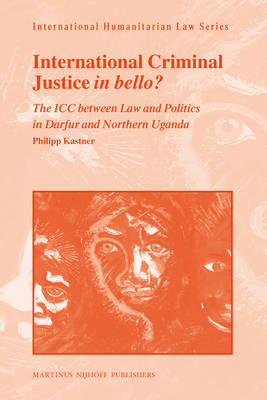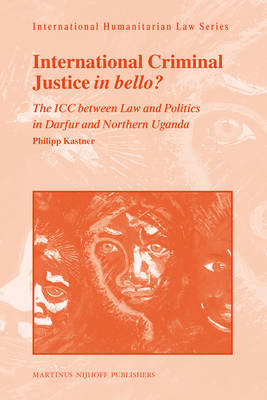
- Afhalen na 1 uur in een winkel met voorraad
- Gratis thuislevering in België vanaf € 30
- Ruim aanbod met 7 miljoen producten
- Afhalen na 1 uur in een winkel met voorraad
- Gratis thuislevering in België vanaf € 30
- Ruim aanbod met 7 miljoen producten
Zoeken
International Criminal Justice in Bello?
The ICC Between Law and Politics in Darfur and Northern Uganda
Philipp Kastner
€ 212,45
+ 424 punten
Omschrijving
The International Criminal Court (ICC) plays a particularly delicate role in situations of ongoing armed conflicts, both from a legal and a political perspective. While the primary objective of the ICC Statute is to end impunity, States Parties and the UN Security Council were mainly driven by political considerations when they triggered ICC jurisdiction over the situations in northern Uganda and Darfur. In this book, the author discusses strategies within the legal framework governing the Court to counter such politicization. He concludes that although the ICC can have beneficial effects on ongoing armed conflicts, its primary raison d'être should not be to influence politics but to continue to fight impunity in the long run.
Specificaties
Betrokkenen
- Auteur(s):
- Uitgeverij:
Inhoud
- Aantal bladzijden:
- 204
- Taal:
- Engels
- Reeks:
- Reeksnummer:
- nr. 34
Eigenschappen
- Productcode (EAN):
- 9789004193123
- Verschijningsdatum:
- 28/10/2011
- Uitvoering:
- Hardcover
- Formaat:
- Genaaid
- Afmetingen:
- 157 mm x 246 mm
- Gewicht:
- 498 g

Alleen bij Standaard Boekhandel
+ 424 punten op je klantenkaart van Standaard Boekhandel
Beoordelingen
We publiceren alleen reviews die voldoen aan de voorwaarden voor reviews. Bekijk onze voorwaarden voor reviews.








